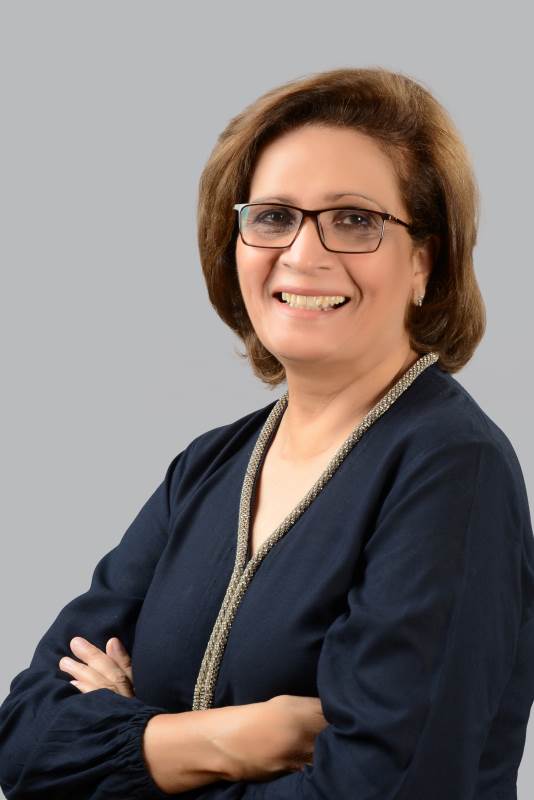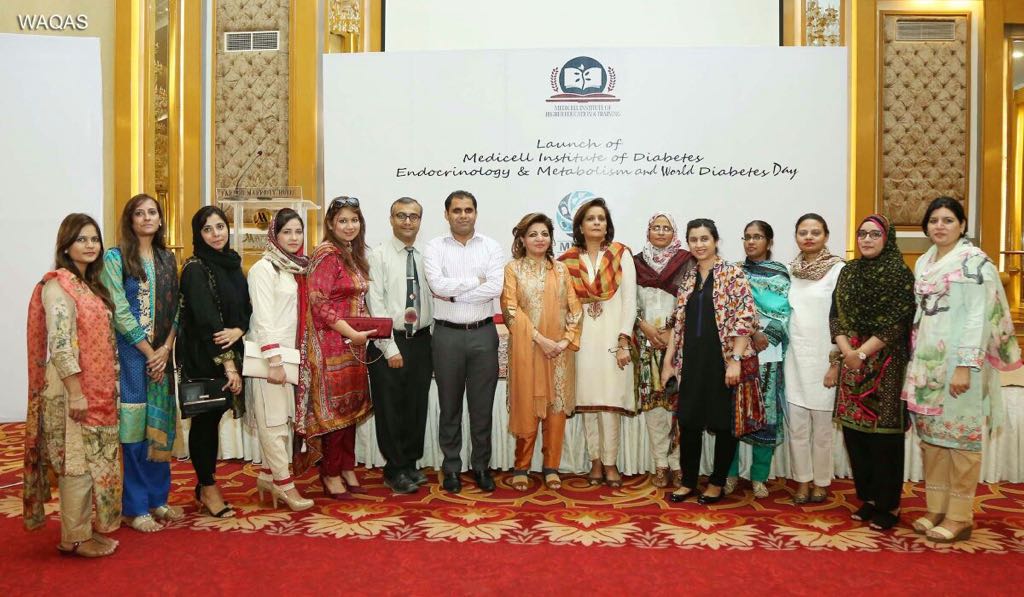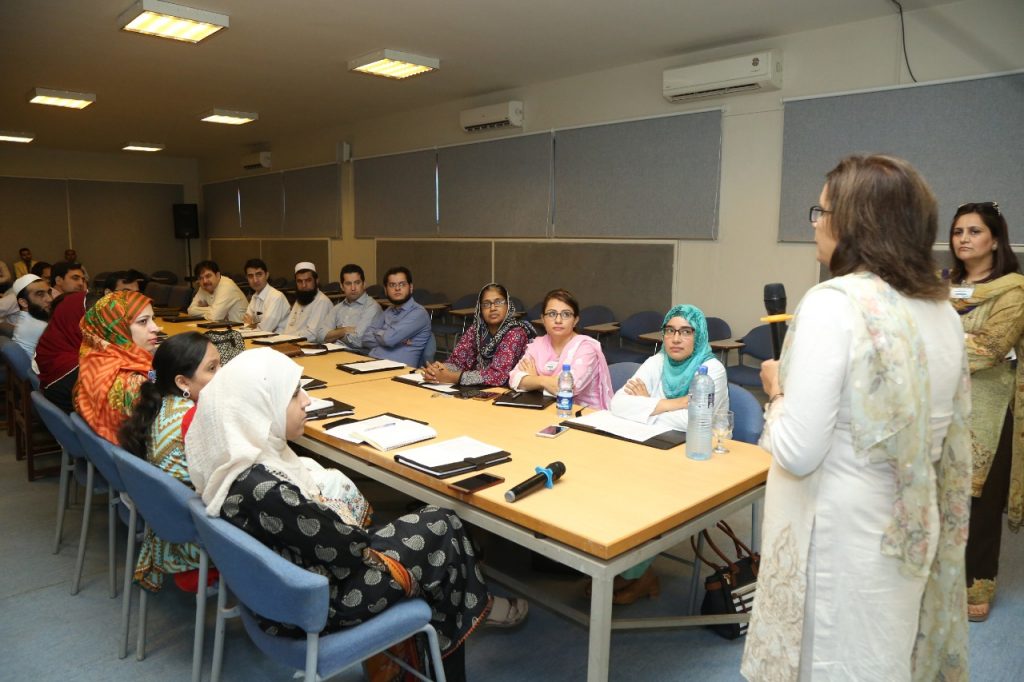Tasnim Ahsan, MRCP, FRCP, knows how to shatter more than a few glass ceilings.
Tasnim Ahsan, MRCP, FRCP, recipient of the Endocrine Society’s 2023 International Excellence in Endocrinology Laureate Award, is also the founder of the Pakistan Endocrine Society. She talks to Endocrine News about treating transgender patients in a challenging environment, launching a nationwide training program for endocrinologists, and her advice for endocrinologists around the world who might find themselves in a similar situation.

Nearly 30 years ago, a small group of endocrinologists practicing in the largest city of Pakistan began to meet once a month to find solutions to improve care for patients with diabetes and other endocrine disorders. The “Endocrinology Club” was born. Among this group was Tasnim Ahsan, MRCP, FRCP — the only woman physician — who helped lead the club to later become the Pakistan Endocrine Society and expand the specialty of endocrinology across the world’s fifth most populous country.
Ahsan once again stands apart, as she recently became the first Pakistani to be honored with the Endocrine Society’s Laureate Award for International Excellence in Endocrinology. Ahsan is a professor emerita at the Jinnah Postgraduate Medical Centre and the founding dean of the Medicell Institute of Diabetes Endocrinology & Metabolism in Karachi, Pakistan. She started the first endocrinology practice in a public sector hospital in Pakistan at the Jinnah Postgraduate Medical Centre in 1993 where she also treats a large transgender community at the Medicell Institute.
Endocrine News asked Ahsan more about her trailblazing work throughout her long career and how she’s significantly improved the access to care and endocrine health of patients across her native home.
As the first Pakistani to win the International Excellence Award, can you share how you felt when you first heard the news?
I first heard the news of the Laureate Award from someone calling on behalf of the Endocrine Society. It was difficult to contain my elation and excitement at that point. There can be no greater validation of anyone’s work than that given by their peers. To be recognized internationally by the prestigious Endocrine Society is indeed a great honor. I am also quite overwhelmed by the manner in which the conferment of this award has been celebrated by my family, friends, colleagues, my trainees, people I have managed, and Pakistanis in general.
“The challenges were a lack of a properly organized healthcare system, which leads to fragmented care for chronic diseases. Investigating endocrine disorders was and still is very difficult because of limited resources and lack of institutional/government support. The lack of these resources compelled me to seek alternative means for raising funds to assist patients in their investigations and subsequent management.”
What was the mission of the Pakistan Endocrine Society when you and your co-founders first discussed the need for the organization?
We founded the Pakistan Endocrine Society in 2003 in Karachi, Pakistan. At that point, most endocrinologists were only working in the largest city of Pakistan, Karachi. To put things in perspective, the endocrinology seedling was first planted in Pakistan by a small group of endocrinologists/internists from various institutions in Karachi.
I was the only female endocrinologist in that group. The first meeting of this “Endocrine Club,” as we called it then, was held in 1994 and has continued uninterrupted ever since then. Today, our membership stands at 160 with 26 additional members from allied disciplines. The objectives of our first monthly meetings were to discuss interesting/problematic cases, share updates, formulate and execute plans to disseminate knowledge and hence change practices, and to support each other in undertaking research in this discipline. Ultimately, the aim was to improve the care of people living with diabetes and endocrine disorders.

A core group within the Endocrine Club, including myself, started working on designing the “Endocrinology Training Program” to train more manpower in this specialty. At the same time, we also lobbied the College of Physicians & Surgeons of Pakistan (CPSP), which is the equivalent of American Board of Medical Specialties, to approve our training program after accreditation of the endocrine faculty in various institutions. The specialty of endocrinology was finally approved by CPSP in 2010, and the first exit exam was held in 2013. I have been part of administering this exam from day one.
Describe the challenges of finding proper care for people of Pakistan, say 15 to 20 years ago? And what do you see as the biggest difference today?
The challenges were a lack of a properly organized healthcare system, which leads to fragmented care for chronic diseases. Investigating endocrine disorders was and still is very difficult because of limited resources and lack of institutional/government support. The lack of these resources compelled me to seek alternative means for raising funds to assist patients in their investigations and subsequent management. This has been a lifelong quest for me. For this purpose, I established an NGO called the Medicine and Endocrine Foundation (MEF) in 1999. Pakistan was also challenged by a severe paucity of endocrinologists and internists with a reasonable grasp of endocrinology.
“My journey in establishing endocrine services from scratch, in a public sector institution serving people from the lower socioeconomic strata of society, has ultimately borne fruit. I urge everyone starting out with a paucity of resources, to work resolutely with whatever resources they have at their disposal and never lose sight of their ultimate goals.”
Today, endocrine care has seen huge differences. In my own institutions, we have a very well-organized system for looking after endocrine patients and are able to provide the ‘standard of care’ treatment with the help of the additional funds we manage to generate through MEF. Many other institutes in the country are now poised to do the same. We also now have a small pool of endocrinologists working in all the provinces of Pakistan, and endocrine facilities are improving all over the country.
With intense continuing medical education activities from the Pakistan Endocrine Society, we have also been considerably successful in raising awareness and streamlining the management of people with endocrine disorders. We have collectively and individually managed to generate and increasingly publish our local data pertaining to endocrine disorders.
Transgender health and the rights of transgender citizens are currently under attack by Republican politicians here in the U.S. Can you share how access to care or rights of the transgender community is in Pakistan?
Transgender people in Pakistan are an extremely stigmatized and marginalized community. There are no dedicated health centers for such people, where holistic care could be provided. Therefore, people with gender incongruence seek help wherever and whenever they can find it, in bits and pieces. The result is that their care is very fragmented and often very delayed. Very few physicians are willing to treat these individuals, and even those who do treat them, do so discreetly because of fear of reprisals (mostly involving scandalous reporting in the media through ill-informed people).
We made great progress in 2018, when the “Transgender Act” was legislated, giving people the right to determine their own gender identity and register as such with National Database & Registration Authority. However, there was a setback in this legislation when it was rejected by the Senate. Recently the “Shariah Court” has given a judgement that forbids an individual to decide her/his own gender identity that is at variance with the sex assigned at birth and pursue any treatment to affirm this identity.
Finally, what words of advice would you give to other endocrinologists treating patients in geographic areas with underdeveloped resources?
My journey in establishing endocrine services from scratch, in a public sector institution serving people from the lower socioeconomic strata of society, has ultimately borne fruit. I urge everyone starting out with a paucity of resources, to work resolutely with whatever resources they have at their disposal and never lose sight of their ultimate goals.

Think out of the box and devise innovative strategies keeping in mind your local ground realities. People around you will recognize your work in time and come to your assistance. Focus on your own professional development and keep yourself updated with emerging evidence in your field. Perseverance and relentless hard work eventually pays off. Never rest on your laurels and set your next goal after you’ve achieved one.
Shaw is a freelance writer based in Carmel, Ind. She is a regular contributor to Endocrine News.

